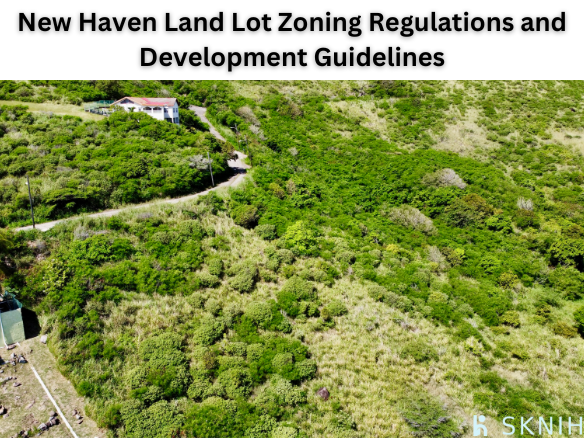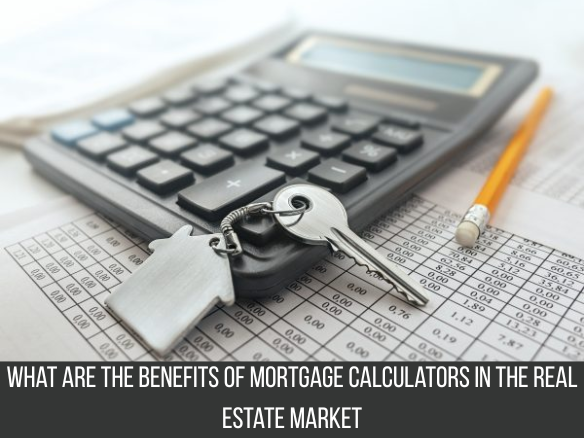New Haven, a city rich in history and cultural vibrancy, is also a hub for urban development and real estate investment. If you’re considering investing in a New Haven land lot, understanding the zoning regulations and development guidelines is crucial. This comprehensive guide will provide you with detailed insights into the zoning laws, development guidelines, and opportunities awaiting in New Haven.
Introduction to New Haven Land Lot
A New Haven land lot offers a unique blend of strategic location, community amenities, and investment potential. As New Haven continues to grow, the demand for both residential and commercial spaces is rising, making now an opportune time to invest in New Haven land for sale. Whether you are looking to build a new home, set up a business, or undertake a mixed-use development, understanding the zoning regulations and development guidelines is essential for success.
Zoning Regulations in New Haven
Zoning regulations in New Haven are designed to ensure the orderly development of the city, balancing the needs of residential, commercial, industrial, and recreational spaces. These regulations are overseen by the City Plan Department and the Board of Zoning Appeals. Here are the key zoning categories and what they entail for a New Haven land lot:
Residential Zoning
1- Single-Family Residential (RS) Zones:
* Primarily for detached single-family homes.
* Regulations include minimum lot size, maximum building height, and setbacks from property lines.
Example: A new haven lot in an RS zone might require a minimum lot size of 5,000 square feet and a maximum building height of 35 feet.
2- Multi-Family Residential (RM) Zones:
-
- Allows for higher-density housing such as apartments and townhouses.
- Regulations include floor area ratios (FAR), height restrictions, and parking requirements.
- Example: A developer planning an apartment complex on a haven land lot in an RM zone must ensure adequate parking and adherence to height limitations.
Commercial Zoning
- Neighborhood Commercial (CN) Zones:
- Designed for small-scale commercial activities that serve local neighborhoods.
- Permitted uses include retail stores, restaurants, and offices.
- Example: A new haven land lot in a CN zone could be developed into a neighborhood coffee shop or a small grocery store.
- General Commercial (CG) Zones:
- Intended for larger commercial enterprises and mixed-use developments.
- Regulations may include signage restrictions, landscaping requirements, and parking standards.
- Example: A mixed-use development with retail on the ground floor and apartments above could be ideal for a CG-zoned new haven lot.
Industrial Zoning
- Light Industrial (IL) Zones:
- Suitable for light manufacturing, warehousing, and distribution.
- Emphasis on minimizing impact on surrounding areas with noise, emissions, and traffic regulations.
- Example: A new haven lot in an IL zone might be developed into a tech startup incubator or a logistics center.
- Heavy Industrial (IH) Zones:
- For more intensive industrial activities such as manufacturing plants.
- Strict regulations to ensure environmental compliance and mitigate adverse effects on nearby residential areas.
- Example: A manufacturing facility on a haven land lot in an IH zone must comply with stringent environmental and safety standards.
Special Zoning Districts
- Historic Districts:
- Areas with historical significance and preserved architecture.
- Development must adhere to guidelines that maintain the historical character.
- Example: Renovating a building on a new haven lot in a historic district requires approval from the Historic District Commission.
- Planned Development Districts (PDD):
- Allows for flexible development plans that might not fit standard zoning categories.
- Requires a detailed development plan and approval from city authorities.
- Example: A large-scale mixed-use project incorporating residential, commercial, and recreational spaces on a haven land lot might be developed as a PDD.
Development Guidelines for New Haven Land Lots
In addition to zoning regulations, New Haven has development guidelines that ensure sustainable, safe, and community-friendly growth. Here are the key considerations for developing a new haven lot:
Building Codes and Permits
- Building Codes: All construction must comply with the Connecticut State Building Code, which sets standards for safety, accessibility, and energy efficiency.
- Permits: Various permits may be required, including building permits, electrical permits, plumbing permits, and occupancy permits. The City Plan Department guides the permitting process.
Environmental Considerations
- Environmental Impact Assessments (EIA): For larger developments, an EIA may be required to evaluate the potential impact on the environment.
- Stormwater Management: Developments must include plans for managing stormwater runoff to prevent flooding and water pollution.
- Green Building Standards: New Haven encourages sustainable building practices, including the use of green materials and energy-efficient designs.
Community Engagement
- Public Hearings: For significant projects, public hearings may be required to gather input from community members.
- Neighborhood Meetings: Developers are encouraged to engage with residents and address their concerns and suggestions.
- Community Benefits Agreements (CBA): Some projects may involve CBAs, which outline specific benefits the development will provide to the local community.
Design Standards
- Architectural Review: In certain zones, particularly historic districts, architectural review is required to ensure that new buildings are compatible with existing structures.
- Landscaping Requirements: Guidelines for landscaping include the preservation of mature trees, planting of new vegetation, and maintenance of green spaces.
- Signage and Lighting: Regulations cover the size, placement, and illumination of signs and outdoor lighting to ensure they do not negatively impact the community.
Examples of Successful New Haven Developments
Example 1: The Whitney Center
The Whitney Center, a mixed-use development located on a New Haven land lot, exemplifies successful urban planning. It includes retail spaces, office buildings, and residential units. The project adhered to zoning regulations by incorporating ample parking, green spaces, and community amenities, making it a valuable addition to the New Haven Development landscape.
Example 2: The Audubon Square
Audubon Square, developed on a haven land lot, is a residential complex featuring modern apartments and townhouses. The project complied with RM zoning regulations, providing high-density housing while maintaining aesthetic harmony with the surrounding neighborhood. The development also included a community park, enhancing the quality of life for residents.
Example 3: The Science Park at Yale
Situated on a new haven land for sale, the Science Park at Yale is a hub for tech startups and research facilities. The project benefited from its IL zoning designation, which allowed for light industrial use. The development has spurred economic growth and innovation, highlighting the potential of strategic land use and zoning compliance.
Frequently Asked Questions (FAQs)
Q1: What are the first steps to take when purchasing a New Haven land lot?
A1: Begin by researching the specific zoning regulations for the New Haven land for sale you are interested in. Consult with the City Plan Department to understand the permitted uses, building codes, and any necessary permits. Engaging a local real estate attorney and a planning consultant can also help navigate the process.
Q2: Can I change the zoning designation of a New Haven lot?
A2: Changing the zoning designation, known as rezoning, is possible but involves a detailed application process and approval from the City Plan Department and the Board of Zoning Appeals. The process includes public hearings and a review of the potential impact on the community.
Q3: Are there incentives for sustainable development in New Haven?
A3: Yes, New Haven encourages sustainable development through various incentives such as tax credits, grants, and expedited permitting processes for projects that incorporate green building practices and energy-efficient designs.
Q4: How do I find out if a New Haven land lot is in a historic district?
A4: You can check with the New Haven Historic District Commission or the City Plan Department. They maintain records and maps of historic districts and can provide information on any additional guidelines or restrictions for development in these areas.
Q5: What are the parking requirements for commercial developments on a haven land lot?
A5: Parking requirements vary based on the specific zoning category and the type of commercial use. Generally, regulations stipulate a minimum number of parking spaces per square foot of commercial space. Consult the City Plan Department for precise requirements for your project.
Q6: Can I subdivide a new Haven lot for multiple uses?
A6: Subdivision of a new haven lot is possible but requires approval from the City Plan Department. The process includes submitting a subdivision plan, complying with zoning regulations for each subdivided parcel, and ensuring that each new lot meets the minimum size and frontage requirements.
Conclusion
Investing in a New Haven land lot offers a wealth of opportunities, but it requires careful planning and adherence to zoning regulations and development guidelines. Understanding these regulations ensures that your project is viable, compliant, and beneficial to the community. Whether you’re developing a residential, commercial, or mixed-use property, New Haven’s supportive infrastructure and vibrant community make it an ideal location for your next project. Embrace the potential of new haven land for sale and contribute to the dynamic growth of this historic city.



